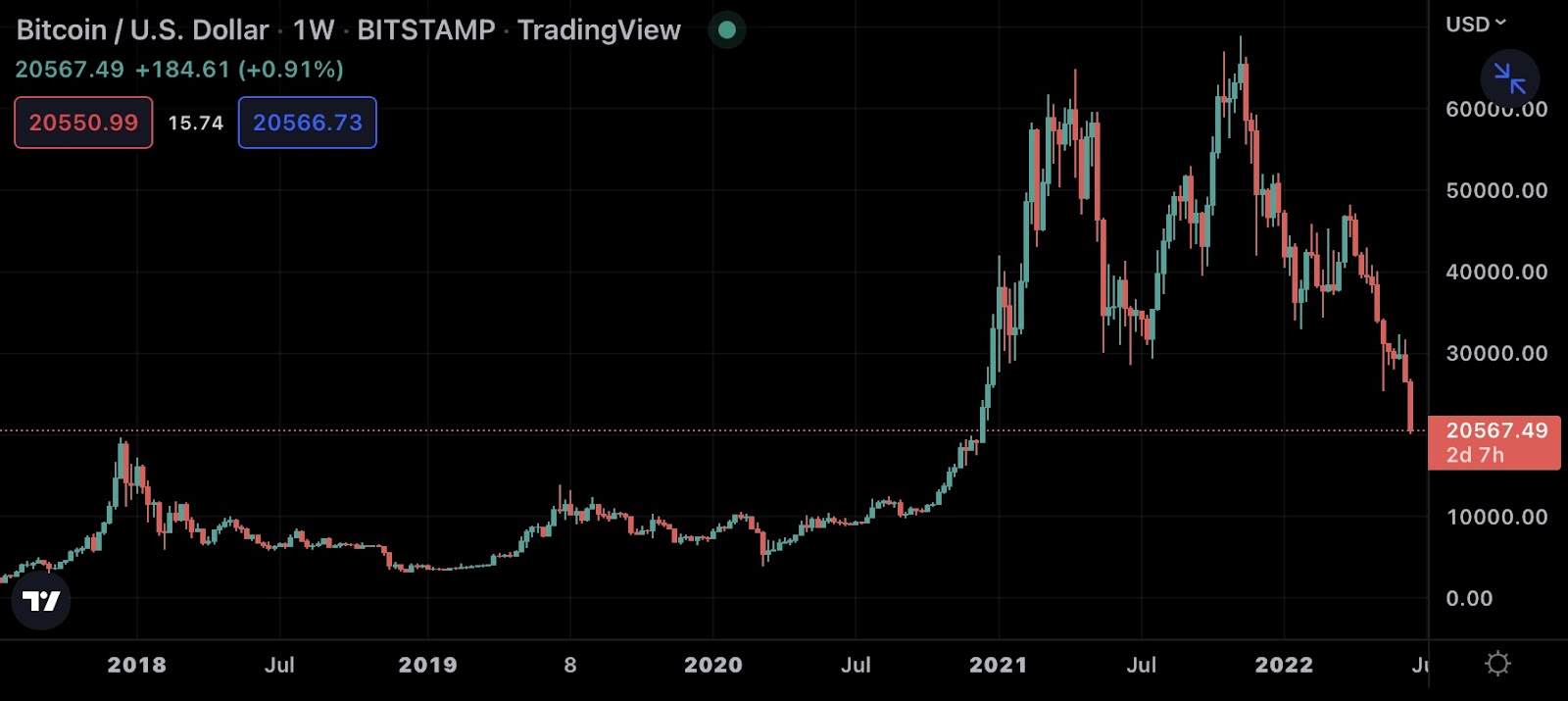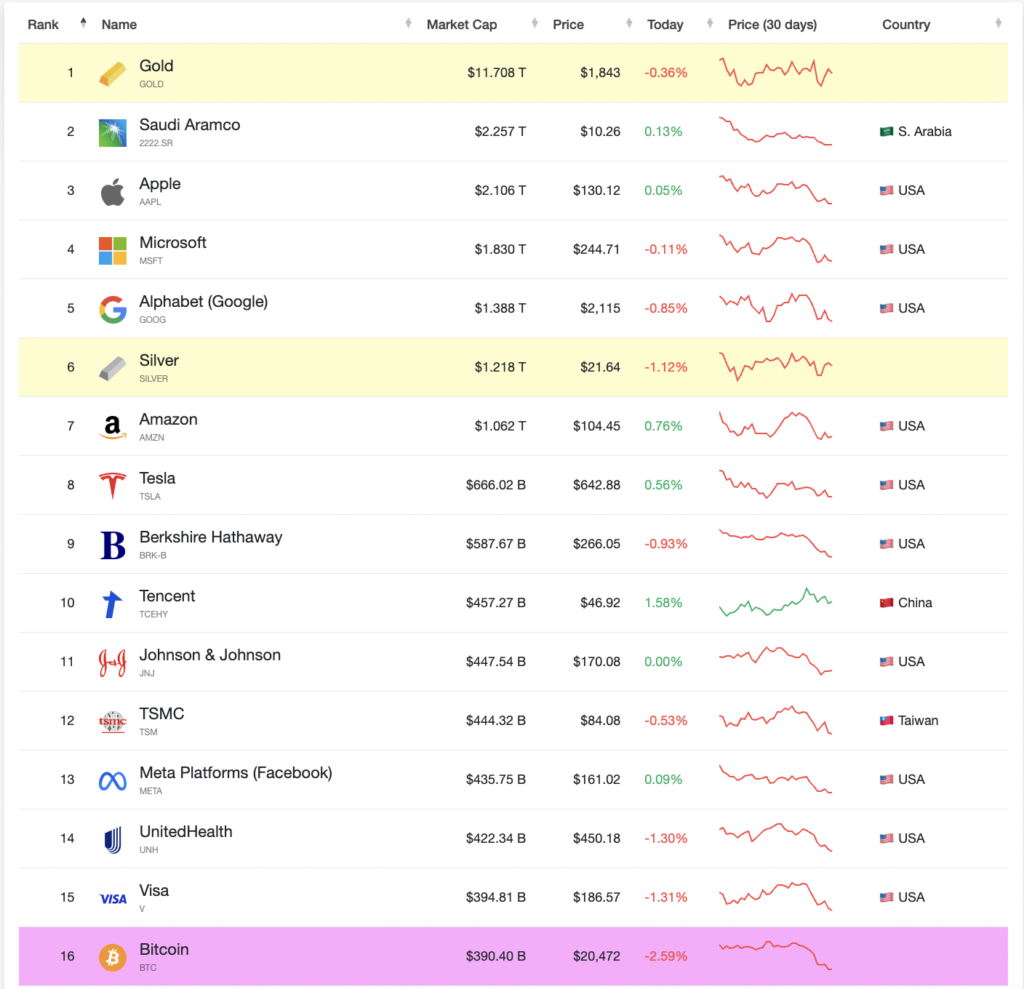Since its inception, Bitcoin has enjoyed widespread adoption and success, notably in financial markets, but the previous year has not been without its setbacks for investors.

Institutional and retail investors have been growing interested in the flagship cryptocurrency in the hopes of outperforming the market as has been the case for a long time. Massive capital inflows have propelled the digital asset to compete in value with the most valued investment products as Bitcoin becomes recognized as an asset class.
However, as the flagship cryptocurrency continues to navigate a highly volatile market during the global financial recession, Bitcoin has been pushed out of the top ten assets globally by market capitalization.

Although the equities markets have also seen major sell-offs, the crypto markets have been the hardest affected of the digital asset classes amid heightened inflation and expectations of interest rate hikes in the United States.
Bitcoin now ranks 16th in terms of market capitalization, losing ground to high-profile traditional financial assets according to data given by company Market Cap.

Prior to the decline, Bitcoin had remained in the top ten, maintaining its status as one of the best-performing assets in the last decade. Proponents of the number one cryptocurrency refer to it as “digital gold” as a hedge against inflation.
Due to factors such as limited supply and decentralization, Bitcoin possesses scarcity and durability, making it a good inflation hedge. Its efficacy as an inflation hedge, investors and intellectuals like Michael Saylor, Elon Musk, and Michael Novogratz have all invested billions because they regard it as a unique asset class.
The market has been extremely choppy as Bitcoin tries to hold gains around the crucial $20,000 support level. With prices continuing to fall, analysts expect that prices will fall much more as Bitcoin attempts to reach a bottom before rallying once again.